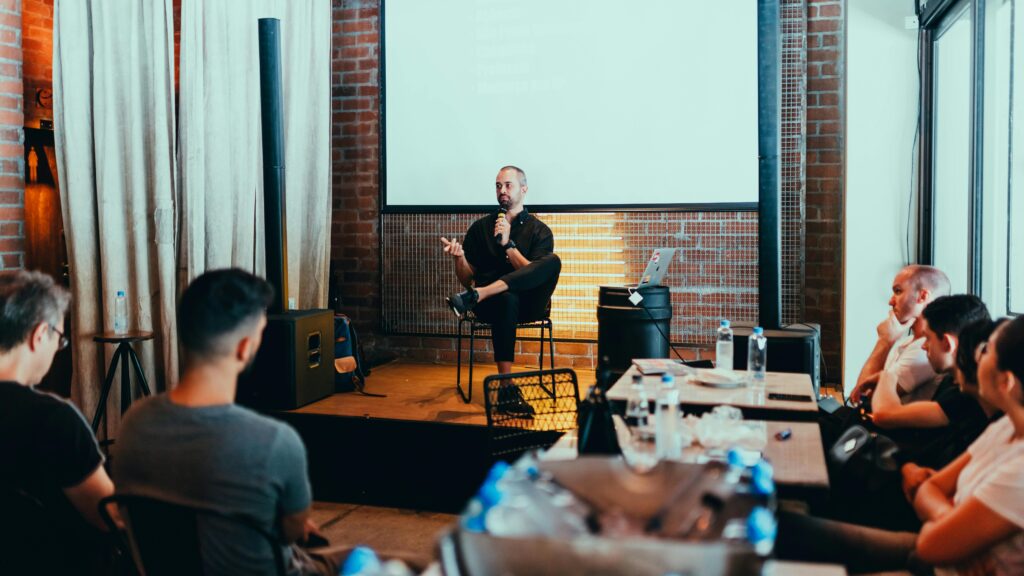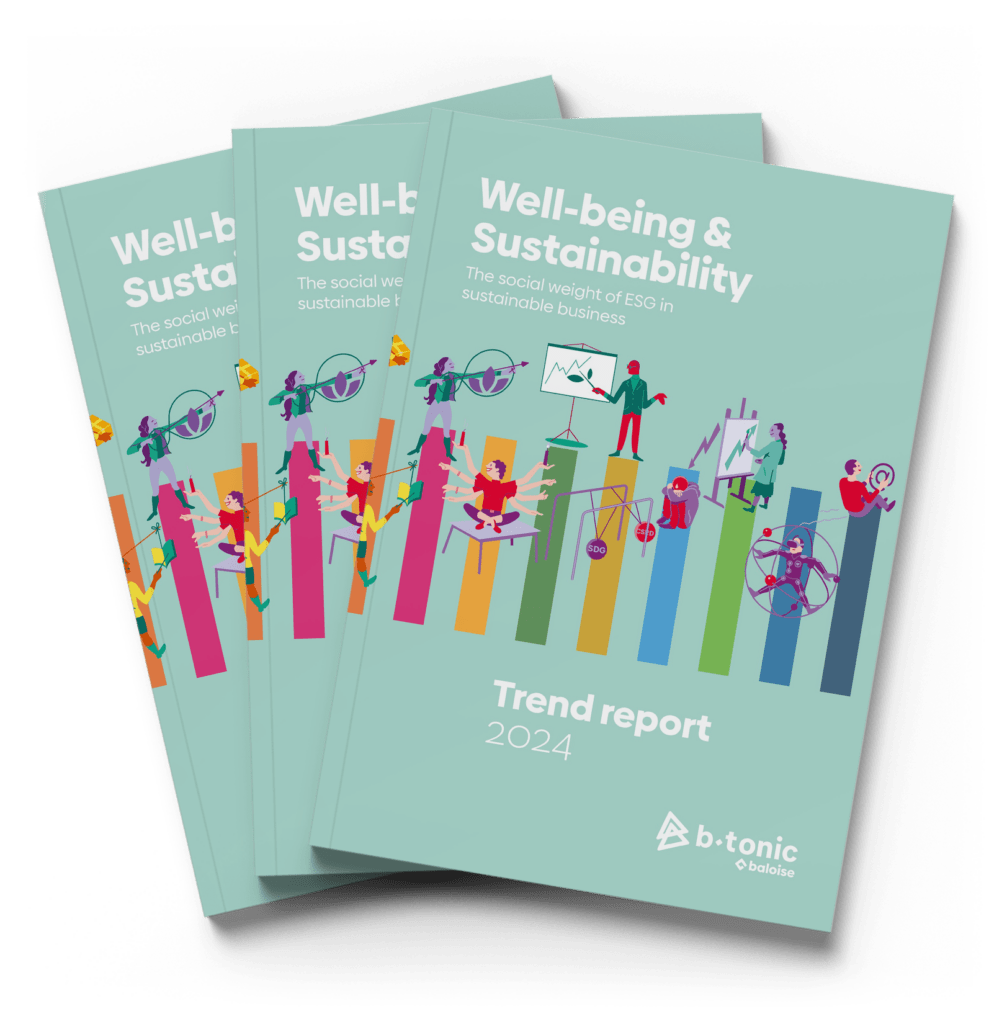After lockdowns, vaccinations and boosters it has become clear: we are slowly learning how to live (and work) with COVID. But which lasting impact did the pandemic have on the role our job plays in our life? And what about the impending burnout wave? AMS Professors Kathleen Vangronsvelt and Ans De Vos researched the impact of the pandemic on employers and employees the past two years and interrogated 8848 employees for this goal (in collaboration with UGent). This research was made possible by B-Tonic, subsidiary of Baloise.
60% expects more flexibility of the employer than before COVID.
Although many employers were less than eager to allow work independent of location and time, remote work is currently strongly normalised. In fact – it has often become a acquired right. No less than six in ten employees expect more flexibility from their employer where and when they work than before the pandemic. One in two expect more understanding of the employer when there are problems in private situations or when the employee is struggling with their mental health.

Only 13% is willing to be more flexible themselves.
Does that flexibility apply into the other direction as well? The numbers seem to suggest otherwise. Only 13% of employees indicate that their willingness to be available outside of the working hours has risen since corona. Especially people in their 30s and 40s do not want to be contacted after hours – people in their 20s are more eager. People in their 20s are also more open to being present in the office, but draw boundaries in other areas and are less eager than other age groups to work at fixed hours.
Professor Kathleen Vangronsvelt (AMS): “Employees feel that the power balance has shifted. People are taking more and more control over their working conditions now they are noticing that it isn’t set in stone. The scarcity on the labour market will definitely influence this as well – employees are currently in a relative position of power.”
For one in three it is still difficult to talk about mental health in an organisation, people in their 20s are especially vulnerable.
Are there no longer any sacred cows? It’s not that simple. Vangronsvelt: “Our research shows that one in three still experience difficulties to discuss mental health with the employer”. And that is an issue, because if there is one thing that has been under pressure the past two years, surely it is mental health. Vangronsvelt: “This is probably the most important reason why employees expect more flexibility from their employer and are less willing to be more flexible themselves – they are worn out“. The findings show that out of all age groups people in their 20s struggle the most to talk about workload within the organisation (36% of them struggle with this vs. 28% of all employees).

The great resignation? Youths significantly more likely to stick to their home base
The number of people looking for a different job remains the same as in 2021 (around 25%). 1 in 4 employees also indicate that they’re less willing to be loyal towards the employer than before the pandemic and that they are actively looking for other jobs now. The writing on the wall that the Great Resignation is also coming to our country?
People in their 60s are looking less for other work than last year, but this is not paired with a higher level of loyalty. Many 60-somethings stay likely because they see little perspective on a new job or simply don’t feel the need to change jobs in the last years of their career. People in their 30s, 40s and 50s, however, are open to new opportunities.
People in their 30s, 40s and 50s are looking for new opportunities
How do we explain that difference between age groups? “Onboarding in times of remote work isn’t easy for anyone. But for young employees it’s an extra challenge because they can get started less independently than someone with some working experience under their belt. Working remotely a lot can thus be a hurdle to overcome in order to switch jobs for younger employees”. When it comes to the increase of the middle group, Vangronsvelt looks for an explanation in awaiting the right moment: “People in their 30s, 40s and 50s could have felt out the situation during the uncertain economic COVID period and now see that there are opportunities. We see no Great Resignation happening but a remarkable tendency”.
Professor Ans De Vos (AMS): “There are major differences in age groups. There is a decrease of a whopping 14% of the degree in which people in their 20s are looking for a different job and this group indicates feeling more loyalty towards the employer.”
‘The new normal’ is the only one we know
In addition, De Vos points out another reason why youths are looking less for another job right now and people in their 30s, 40s and 50s more: the different experiences with social contact with colleagues and the atmosphere at work. But it’s exactly those things that were under pressure the past two years. “When it comes to the Great Resignation, turnover is only the tip of the ice berg. Underneath there is a generalised feeling of alienation and the feeling of ‘it’s been enough’.” We see that not only in the imbalance between expecting flexibility from the employer and what employees are willing to give, but also in a higher turnover rate. And those processes are more at play for employees that can compare with how it used to be than youths who did not live through that history. At the start of your career you are ‘raised’ in what working is and what is normal – ‘the new normal’ is for young employees simply their normal – the only thing they’ve known.”
About this research
This research came to be thanks to a collaboration between the centre of expertise Next Generation Work of Antwerp Management School and UGent and was made possible by B-Tonic, subsidiary of Baloise, Bpact/Indiville, SD Worx and HRmagazine. The employee survey was conducted by the Belgian working population (8848 employees over 3 surveys); the last survey occurred between 25 May and 17 June 2022 with 1902 respondents.




